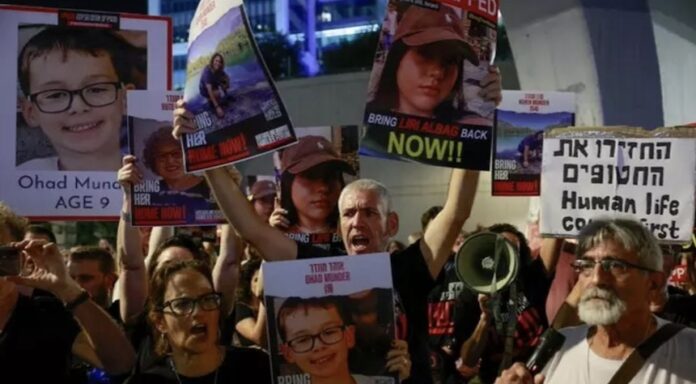Hamas has agreed “in principle to the release of about 50 Israeli women and children, pending the approval of the Israeli government.”
Hamas agreed to stop fighting for a period of three to five days, increase aid to Gaza, and release a number of women and children who were held in Israeli jails in exchange for Israel.
Israel and Hamas are refusing to speak directly with each other, and Qatar acts as a middleman. Communication with Hamas battlefield units is spotty, and it can take hours to get a response from Israel.
There are some signs that the Israeli war cabinet will reject the proposal when they meet this morning, U.S. Time. Too many hostages and too long of a break in the fighting.

Washington Post:
It is hoped that an agreement for the release of some of the hostages could lead to more talks about the rest of those still held in Gaza. Hamas had previously indicated that it would keep Israeli hostages estimated at several dozen. This was to be used in exchanges with Palestinian militants in Israeli prisons.
The Prime Minister’s office and members of his war Cabinet refused to make any comments on Wednesday about a possible hostage situation.
Netanyahu, speaking at a military base in southern Israel said: “There is no place in Gaza that we will not reach.” “Hamas killers have no place to hide, no place to shelter, and no refuge. … Hamas and the hostages will both be freed.”
The UN, as usual, is not much help. The Security Council’s snobs approved a resolution on Wednesday that called for an “urgent humanitarian pause” and, as a last-minute addition, also included the release of the hostages. The U.S. and Great Britain abstained.

Hamas also claims to not know the location of several dozen hostages held by other terror groups. Hamas is aware of these terror groups and knows how to contact them to free the hostages.
Hamas told negotiators it did not control or know where all the hostages were. Some, it said, were being held by Palestinian Islamic Jihad – another militant group in Gaza. Biden stated that there were “between 50 and 100 hostages” in his press conference. A senior administration official confirmed that this was a reference to “a group of hostages we know Hamas has, that are included in the negotiations.”
Benjamin Netanyahu finds himself in a difficult situation. He has already been in a lot of trouble politically, and if the hostages are not released he will have to deal with a furious civil population. The fate of the hostages is now more important than the war in Israel.
Netanyahu has demonstrated in the past his willingness to ignore public opinion and achieve goals he considers vital to Israel. If he rejects the hostage agreement, it won’t be good for the hostage families and could have some political consequences. Netanyahu and many Israelis see this war, regardless of whether people agree with him or disagree, as an existential crisis for Israel.




